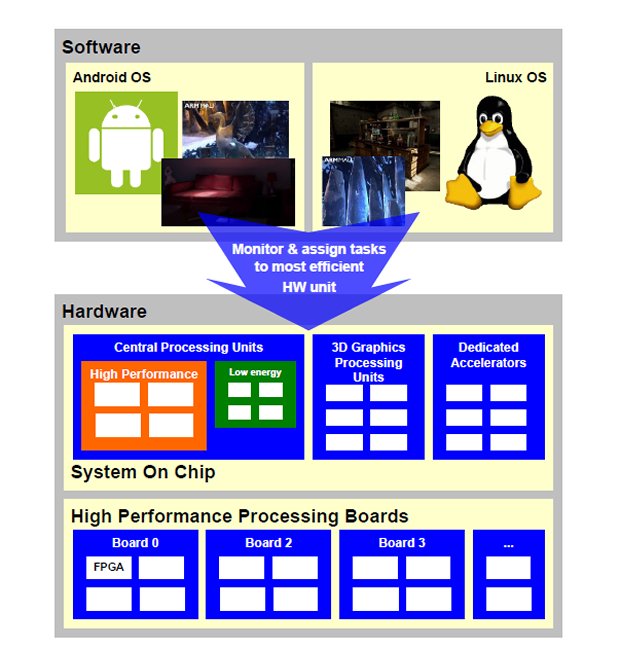Project leads hardware, software and OS innovations
This week marks the completion of the SAVE project, which challenged a team of engineers and researchers to explore how complex hardware systems can more efficiently execute data intensive applications. Funded by the European Union, SAVE has led to a number of innovations in hardware, software and Operating System (OS) components.
When integrated together, they can reduce application deployment costs and maximise usage of heterogeneous system computing units, resulting in energy efficiency being improved by up to 20%.
A range of complex electronic systems stands to benefit from these innovations, including computer data centres, consumer electronics, automotive products and complex industrial electronics.
The computing units can be on chip, for example Central Processing Units (CPUs) ranging from small and low-power to high-end and efficient, Graphics Processing Units (GPUs), and dedicated accelerators. Alternatively, the units can be off chip, such as racks of dedicated accelerators or Fieldprogrammable Gate Arrays (FPGAs).
The prototyped technologies will enable performance and energy-efficiency gains in Highperformance Computing (HPC) and embedded heterogeneous systems.
Key achievements include:
- platform behaviour monitoring and task dispatching hardware and software: the first toolset closely tracks the performance and use rate of the various computing units available in the heterogeneous systems. The second toolset decides which computing units are best suited for the job.
- Just-in-Time compilation technology: using SAVE technologies, at runtime, a single application-code representation is optimised to the many possible hardware targets of the platform: CPUs, GPUs, accelerators, FPGAs.
- hardware and software virtualisation technologies: these technologies efficiently expose the dedicated processing engines to the many Virtual Machines (VM) running on these systems. The teams successfully prototyped virtualised GPUs, virtualised FPGA-based Data-Flow Engines (DFEs), and virtualised application-specific accelerators.








